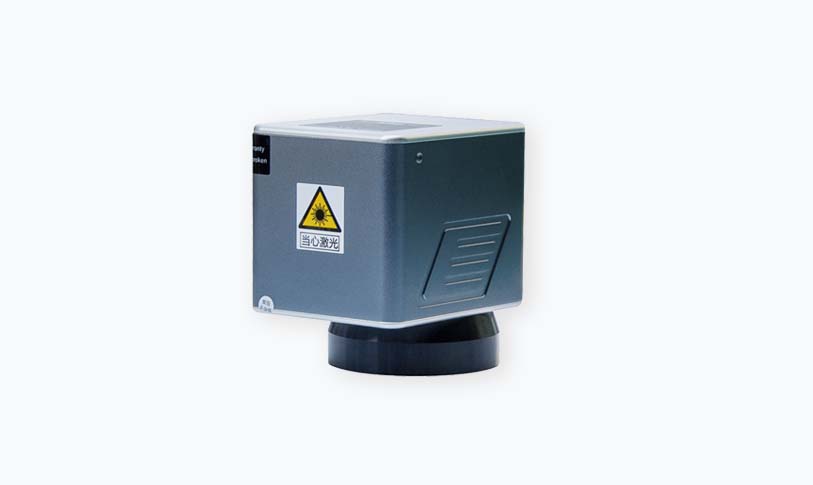****
In recent years, the evolution of laser scanning technology has transformed the landscape of numerous industries, from manufacturing to medical devices. At the forefront of this transformation is the galvanometer laser scanner, a pivotal innovation that has enhanced the precision and efficiency of laser-based applications. This article will delve into the mechanics of galvanometer laser scanners, their applications, and the significant advancements they bring to precision engineering and manufacturing processes.
What is a Galvanometer Laser Scanner?
A galvanometer laser scanner consists of a laser light source and a system of mirrors that are controlled by high-speed galvanometer motors. The motors adjust the angle of the mirrors rapidly and accurately, directing the laser beam across a surface in a controlled manner. The key elements of a galvanometer system include the galvanometer itself, often equipped with rotary or tip-tilt mirrors, and the computer software that controls the positioning of the mirrors in real time.
The working principle of the galvanometer laser scanner hinges on the concept of beam deflection. By changing the angle of the mirrors rapidly, the scanner can manipulate the laser beam’s path with extraordinary precision. This technology allows for the creation of intricate patterns and designs using laser engraving, marking, welding, and cutting applications.

Understanding the Role of Galvanometer Laser Scanners in Modern Industrial Applications and Their Impact on Precision Engineering

Understanding the Role of Galvanometer Laser Scanners in Modern Industrial Applications and Their Impact on Precision Engineering
Key Applications of Galvanometer Laser Scanners
1. **Laser Engraving and Marking:** One of the most common uses of galvanometer laser scanners is in laser engraving and marking. They are used extensively to engrave logos, barcodes, and QR codes onto a variety of materials like metals, plastics, wood, and glass. The speed and precision afforded by these scanners enable high-quality, detailed engravings that are both permanent and resistant to wear.
2. **Medical Device Manufacturing:** The medical industry requires precise and reliable manufacturing processes to produce high-quality medical devices. Galvanometer laser scanners are used for tasks such as cutting delicate components, engraving serial numbers, and laser welding components together. The ability of these scanners to execute precise movements makes them invaluable for medical applications.
3. **3D Scanning and Digital Twins:** Galvanometer laser scanners are also vital in the realm of 3D scanning. They capture the precise dimensions of objects by analyzing how laser beams reflect off surfaces. This technology is crucial in creating digital twins—highly accurate digital models of physical assets that can be used in simulations, analysis, and monitoring systems across various sectors.
4. **Industrial Manufacturing:** In sectors like automotive and aerospace manufacturing, galvanometer laser scanners are employed for tasks such as precision cutting, welding, and quality assurance. They allow manufacturers to maintain high standards with accurate, repeatable processes that boost productivity and reduce waste.
Advantages of Galvanometer Laser Scanners
Several factors contribute to the popularity and effectiveness of galvanometer laser scanners in industrial applications:
– **Speed and Efficiency:** Galvanometer laser scanners can operate at high speeds, making them suitable for high-volume production environments while maintaining exceptional accuracy. This capability allows companies to increase their throughput without sacrificing the quality of output.
– **Versatility:** These scanners can be adapted for a wide range of materials and applications, making them essential tools in various manufacturing sectors. Whether it’s engraving on delicate electronics or cutting through robust metal, galvanometer scanners can be optimized for specific tasks.
– **Minimal Maintenance:** Galvanometer systems are known for their durability and low maintenance requirements. Their robust design ensures longevity and reliability, which are critical in a manufacturing setting where downtime can be costly.
Future Trends and Developments

Understanding the Role of Galvanometer Laser Scanners in Modern Industrial Applications and Their Impact on Precision Engineering
Looking towards the future, the integration of advanced technologies such as Artificial Intelligence (AI) and machine learning can enhance the functionality of galvanometer laser scanners. These technologies could lead to improved automation, real-time data analysis, and adaptive laser control systems, further optimizing production processes.
Additionally, as industries continue to demand greater precision and efficiency, innovations in materials science and optics may lead to the development of even faster and more accurate scanning systems.
Conclusion
Galvanometer laser scanners are revolutionizing precision engineering and manufacturing. Their unmatched speed, versatility, and precision play a critical role in the success of numerous applications across various sectors. As technology continues to advance, the future of galvanometer laser scanners promises to deliver even greater capabilities, making them an indispensable part of modern industrial processes. Understanding and leveraging this technology will be essential for companies aiming to stay at the forefront of innovation and efficiency in an increasingly competitive marketplace.fiber laser vs co2 laser


